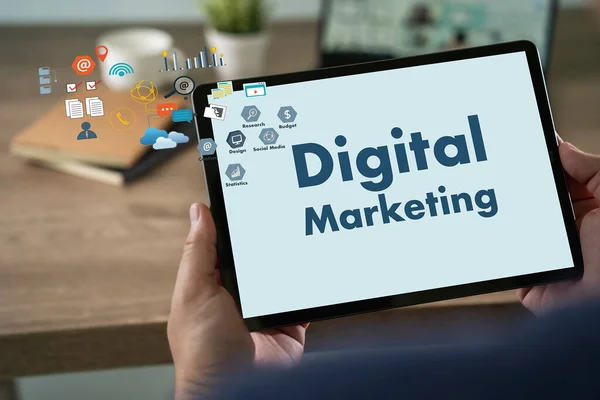
In today’s hyper-connected world, digital marketing has become the cornerstone of success for businesses of all sizes and industries. With the ever-evolving landscape of online platforms and technologies, mastering digital marketing is essential for staying ahead of the competition and reaching your target audience effectively. In this comprehensive guide, we’ll explore the fundamentals of digital marketing and unveil strategies to help you elevate your brand in the digital sphere.
Understanding Digital Marketing:
Digital marketing encompasses a broad range of strategies and tactics aimed at promoting products or services through digital channels. From search engine optimization (SEO) and social media marketing to content marketing and email campaigns, digital marketing offers endless opportunities for businesses to connect with their audience, drive engagement, and achieve their marketing objectives.
Key Components of Digital Marketing:
- Search Engine Optimization (SEO): SEO is the process of optimizing your website to rank higher in search engine results pages (SERPs), thereby increasing organic traffic and visibility. By optimizing your website’s content, structure, and metadata, you can improve its relevance and authority in the eyes of search engines like Google.
- Content Marketing: Content marketing involves creating and distributing valuable, relevant, and consistent content to attract and retain a clearly defined audience. Whether it’s blog posts, videos, infographics, or podcasts, compelling content serves as the foundation of successful digital marketing campaigns.
- Social Media Marketing: Social media marketing leverages social media platforms such as Facebook, Instagram, Twitter, LinkedIn, and TikTok to connect with your audience, build brand awareness, and drive engagement. By sharing engaging content, interacting with followers, and running targeted advertising campaigns, businesses can amplify their message and expand their reach on social media.
- Email Marketing: Email marketing involves sending targeted and personalized emails to a list of subscribers with the goal of nurturing relationships, promoting products or services, and driving conversions. From welcome emails and newsletters to promotional offers and automated campaigns, email marketing remains a powerful tool for engaging with your audience and driving sales.
- Pay-Per-Click (PPC) Advertising: PPC advertising allows businesses to bid for ad placement in search engine results or on websites, paying a fee each time their ad is clicked. Platforms like Google Ads and Facebook Ads offer sophisticated targeting options and tracking capabilities, making PPC advertising a cost-effective way to reach your target audience and drive targeted traffic to your website.
Strategies for Digital Marketing Success:
- Know Your Audience: Understand your target audience’s demographics, preferences, and behavior to create tailored marketing campaigns that resonate with their needs and interests.
- Set Clear Objectives: Define specific, measurable goals for your digital marketing efforts, whether it’s increasing website traffic, generating leads, or boosting sales. Setting clear objectives will guide your strategy and help you measure your success.
- Create Compelling Content: Develop high-quality, valuable content that educates, entertains, or inspires your audience. Focus on providing solutions to their problems and addressing their pain points to build trust and credibility.
- Optimize for Mobile: With the majority of internet users accessing content on mobile devices, ensure that your website and marketing campaigns are optimized for mobile responsiveness and usability.
- Monitor and Measure Performance: Regularly track key metrics such as website traffic, engagement rates, conversion rates, and ROI to evaluate the effectiveness of your digital marketing efforts. Use this data to identify areas for improvement and refine your strategy over time.
Conclusion:
Digital marketing is a dynamic and ever-evolving discipline that requires strategic thinking, creativity, and adaptability. By understanding the key components of digital marketing, defining clear objectives, creating compelling content, and continuously monitoring and optimizing your campaigns, you can elevate your brand in the digital sphere and achieve sustainable growth and success. Embrace the opportunities afforded by digital marketing, and watch as your brand flourishes in the digital landscape.